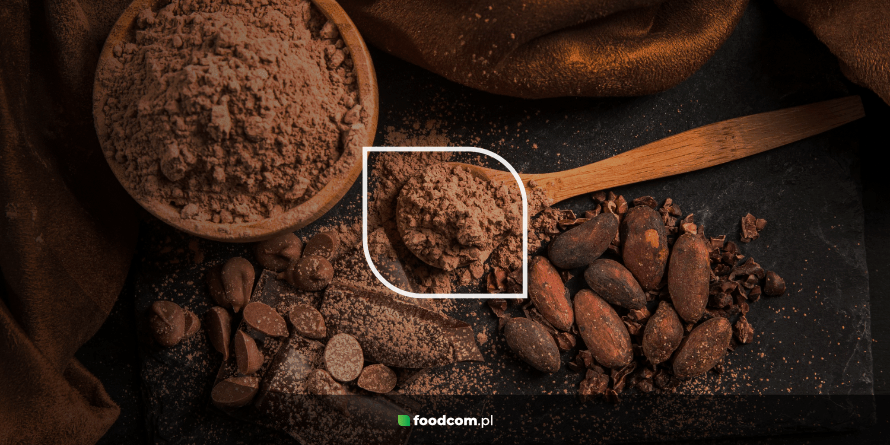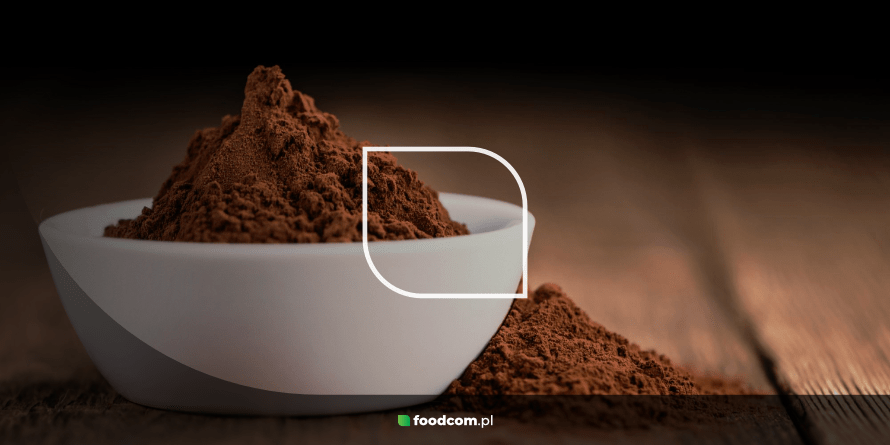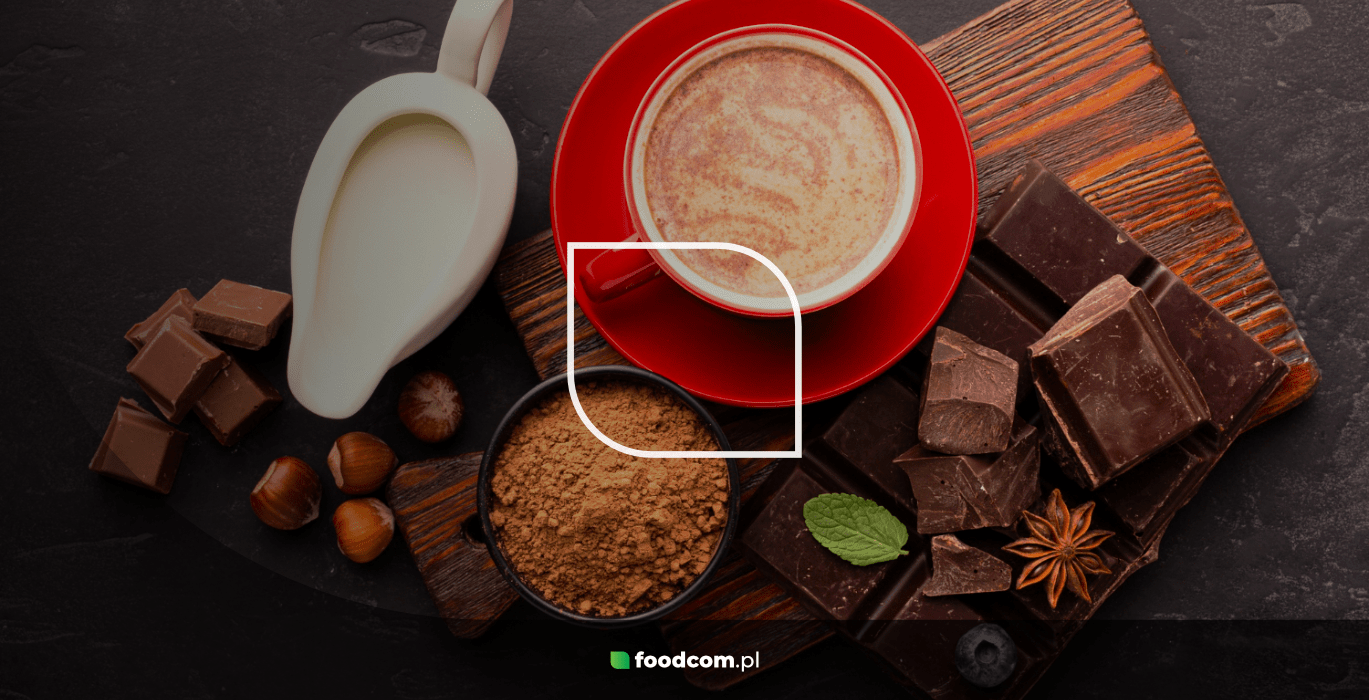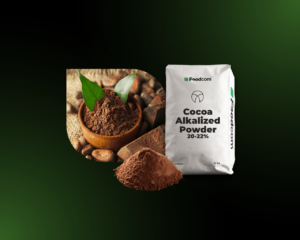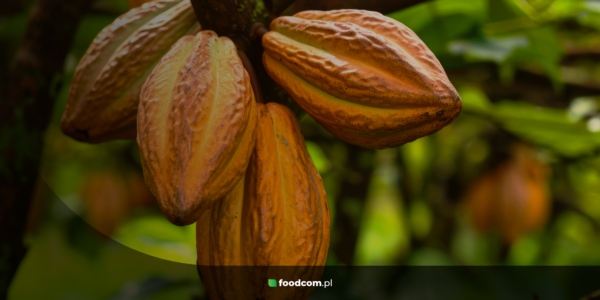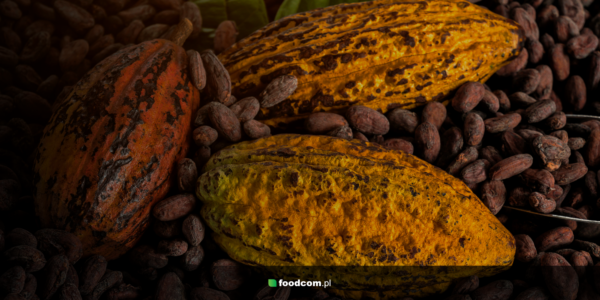- Cocoa is a source of valuable nutrients that have a beneficial effect on our health and well-being.
- The properties of cocoa include antioxidant effects, support for the cardiovascular system and improved concentration.
- Its richness in minerals and polyphenols means that cocoa is widely used in the food, cosmetics and pharmaceutical industries.
Cocoa has for centuries been associated not only with a pleasant taste, but also with exceptional health benefits. Today, its potential has been recognised by consumers as well as food manufacturers, pharmaceutical companies and the cosmetics industry. More and more studies confirm that cocoa can be considered a ‘superfood’. In the following article, you will find out what the most important properties of cocoa are, what its nutritional values are and how it can be used in various industries.
History and importance of cocoa in the world
Cocoa, once referred to as the ‘drink of the gods’, was highly prized by the Mayans and Aztecs. It was used not only in rituals, but also as currency and part of the daily diet of the social elite. Cocoa arrived in Europe in the 16th century and quickly became a luxury commodity, over time gaining global popularity.
Today, cocoa is one of the most important agri-food commodities in the world. Annual production of cocoa beans exceeds 4.5 million tonnes, with the main producers being Côte d’Ivoire, Ghana, Nigeria and Indonesia. Demand for cocoa is growing steadily.
Cocoa’s nutritional properties
Cocoa is highly valued for its valuable nutritional properties. Cocoa beans contain:
- protein – cocoa powder contains around 20% protein, which demonstrates its excellent nutritional value;
- fat – the beans contain 10-15% fat, mainly in the form of cocoa butter which is rich in unsaturated fatty acids;
- dietary fibre – facilitates digestive processes;
- magnesium – supports the nervous and muscular systems;
- iron – essential for the production of haemoglobin;
- potassium and calcium – regulating the heart and circulatory system;
- polyphenols and flavonoids – powerful antioxidants that protect cells from oxidative stress;
- theobromine and caffeine – to improve concentration and give energy;
- b vitamins, including thiamine, riboflavin and niacin, which support energy metabolism.
As a result, cocoa plays a role not only as an ingredient in chocolate, sweets and beverages, but also as an important part of a health-promoting diet.
How does cocoa affect health and well-being?
Regular consumption of high-quality cocoa in moderation can provide a number of benefits, such as:
- mood enhancement – the presence of serotonin, dopamine and anandamide supports the production of so-called ‘happy hormones’;
- reduction of stress and fatigue – magnesium and theobromine help to relax muscles and reduce tension;
- support of concentration and cognitive functions – among other things, through the presence of magnesium, B vitamins and caffeine;
- cardiovascular support – flavonoids reduce blood pressure and improve the elasticity of blood vessels;
- regulation of lipid metabolism – cocoa promotes lowering of LDL (“bad cholesterol”) and raising of HDL;
- strengthening immunity – thanks to its high antioxidant content, cocoa supports the body’s natural defence mechanisms.
It is no wonder that in many studies researchers refer to cocoa as a natural dietary supplement that combines taste with health benefits.
Types of cocoa and its properties
Depending on how cocoa is grown and produced, it can have different properties. The place where the cocoa tree grows, the way the plantation is cared for, the process of fermentation and drying of the beans, followed by roasting, grinding and the type of processing, all play a role. Different forms of cocoa can have different protein, fat and bioactive content, colour, taste and solubility.
The cultivation of cocoa is important for its properties in that its location, soil and climate determine the aroma and bioactive content of the beans. The method of fermentation and drying, often specific to the plantation, determine the quality and intensity of flavour.
The way the dried beans are processed is also not insignificant. Roasting and grinding the beans give the cocoa its characteristic aroma and determine its consistency. The type of processing is key here – alkalised cocoa has a milder taste, but also a lower polyphenol or caffeine content. Low-processed ceremonial cocoa, considered the most natural and bioactive-rich form of this raw material, is becoming increasingly popular.
Properties of cocoa and its uses
Cocoa is widely used not only in the production of sweets, desserts and beverages, but also:
- in premium products – as the basis for innovative items such as artisanal chocolates, healthy snacks or products for athletes, as well as in molecular gastronomy;
- in pharmaceuticals – as an ingredient in dietary supplements to support the cardiovascular system, memory and concentration;
- in cosmetics – cocoa butter is used in particular and is valued for its moisturising, regenerating and antioxidant properties as an ingredient in lotions, creams and masks.
There is a growing interest in cocoa products with increased functional value on the market. Cocoa is increasingly finding its way into energy drinks, supplements or vegan and gluten-free foods.
The cocoa market continues to grow and demand for high-quality raw materials continues to increase. Cocoa is a product with huge potential – both in terms of health and business. Thanks to its traditional taste, nutritional properties and wide range of applications, it is an attractive product for many industries – it is worth expanding your offer with products containing this raw material and establishing a partnership with a trusted cocoa wholesaler. Foodcom offers a wide range of cocoa products of proven quality and origin, such as cocoa powder, beans or cocoa butter.


